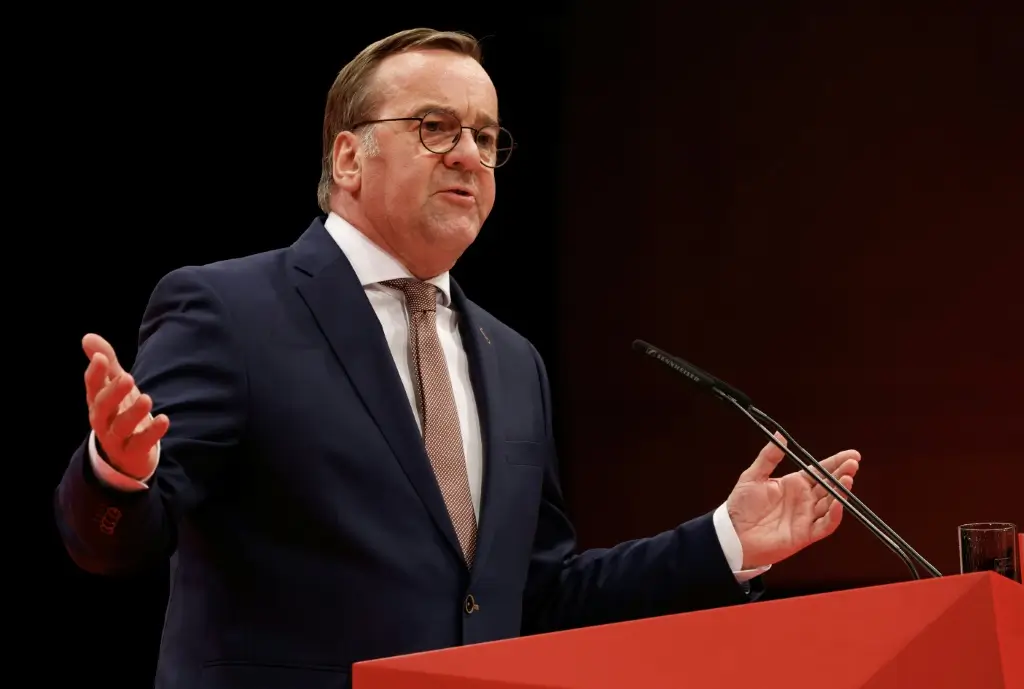
The SPD party conference controversially debated the recently agreed NATO target of increasing defense spending to five percent of economic output. Critics warned on Saturday of restrictions on funding for areas such as social welfare and climate protection, and of a global arms race. Federal Defense Minister Boris Pistorius was forced to speak out in defense of the five percent target.
A motion introduced at short notice by critics against a "rigid fixation of defense spending at five percent" was ultimately rejected in a vote by 310 delegates, with 176 supporting the text and 15 abstaining. Opponents of the five percent target had previously forced a second vote because they doubted the party conference leadership's estimate of rejection in the first round.
The preceding debate showed that the issue touched on the core of the self-image of many Social Democrats. The "five percent dictate" was "the opposite of peace policy," said Bundestag member Nina Scheer. The significantly rising defense spending would prevent urgently needed spending on climate protection.
It is already clear that the budget will not provide sufficient funds for the promised climate money to offset the rising CO2 price and the reduction in electricity tax, said delegate Klaus Bartel from Bavaria. This will now "continue merrily" in other areas due to high defense spending.
Five percent of the gross domestic product is 225 billion euros, said Daniele Cipriano from Baden-Württemberg. "Where will the 225 billion for social security go?" The money will also be missing in housing construction, for example.
SPD Left Party member Lothar Binding accused the German government of agreeing to the five percent because of a "snap of the fingers" by US President Donald Trump, and not because the money was truly needed. Former EU MP Joachim Schuster called the NATO decision "disturbing, alienating, and irritating." He added that it was "not clear what the actual reason for this is." The NATO decision would trigger "a gigantic arms race" because it would also lead to Russia and China rearming.
Pistorius clearly rejected the critics' arguments. The five percent target is based on the actual threat situation and the capability targets agreed upon within NATO for effective deterrence, the Defense Minister said. "This threat is there," and Russia has switched to a "war economy."
However, Pistorius also pointed out that the NATO resolution for 2029 contains a review clause. At that time, he said, it will be reviewed whether defense funds of this level are still necessary given the current situation. Pistorius also promised that the German government will continue to advocate for diplomacy and disarmament through all means possible. This remains the "core mission."